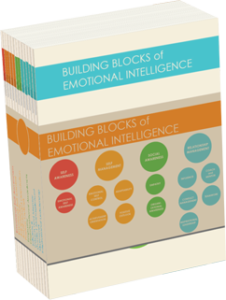Published on September 5, 2017
“We take ten minutes together in mindful silence before we start our day,” the CEO of a boutique investment firm tells me. “We’re more connected the rest of the day.”
Mindfulness has swept through the business world, riding on the momentum of scientific findings that show benefits.
But mindfulness has its critics. One of the loudest objections says the practice is over-hyped, that the research does not support the claims being made.
Which is it?
I share some of the definitive answers in my new book Altered Traits: Science Reveals How Meditation Changes Your Mind, Brain, and Body. My co-author, neuroscientist Richard Davidson at the University of Wisconsin, heads the largest science lab that studies meditation. His group has helped us sift through the more than 6,000 peer-reviewed articles on meditation and find the 60 or so bullet-proof studies.
To be sure, we found many so-so studies that have been hyped by those selling mindfulness to the business world. But even so, the news here for that CEO – and anyone else intrigued by or already practicing mindfulness – is positive.
Three big take-homes:
· Stress Resilience. Mindfulness and other kinds of meditation calm the amygdala, the brain’s trigger for anger, anxiety and a host of similar disruptive emotions. The more you practice, the less reactive your amygdala becomes. And if you do get hijacked from time to time (and who does not?), you recover more quickly – the very definition of resilience.
· Focus. Mindfulness strengthens concentration, and every related aspect of attention from keeping your mind on one thing amidst a sea of distractions, to being more present to what’s going on around you. “Whenever my mind wanders in a meeting, “ one executive told me, “I wonder what business opportunity I just missed.” Less mind wandering, better focus even when multi-tasking.
· Connection. A cousin of mindfulness, lovingkindness meditation, makes you more open to the needs of the people around you, and more likely to help them out. This kind of leadership builds great loyalty, so people will feel they want to do their best for you, and show up even when the pressure and stress are mounting. When I ask executives around the world to name the traits of the boss they have liked the most, kindness always comes up high on the list.
Altered Traits: Science Reveals How Meditation Changes Your Mind, Brain, and Body
So is mindfulness the key to greater success? Yes and no. It definitely helps in these ways. But when Dr. Matthew Lippincott at the University of Pennsylvania analyzed in-depth interviews with 42 executives who practiced mindfulness and had positive outcomes, he found that their success was not directly due to mindfulness. Although they thought so, in fact they were getting better performance by honing the emotional intelligence competencies that distinguish outstanding leaders.
Mindfulness helped directly with self-awareness and with managing their disruptive emotions. But when it comes to competencies like keeping a positive outlook or inspiring others, mindfulness was not that relevant.
If you want to try mindfulness, the basic instructions are simple. Start by finding a quiet time and place and sit up in a comfortable chair, your spine relaxed but straight (this is so you don’t fall asleep). Bring your attention to the natural in-and-out of your breathing. Don’t try to control it, just watch. When your mind wanders off, and you notice it wandered, bring it back to your breath.
Seems super-easy, but that’s deceptive. Our minds wander half the time, on average. You’ll notice this more as you try to change that habit – don’t give up. It can help to listen to instructions, especially at the start.
This simple routine amounts to a mental fitness exercise. Just as a regular workout keeps us physically fit, regular practice of mindfulness makes us more fit mentally. But as with your gym routine, you need to keep at it regularly. As with any workout, the benefits grow the more you practice.
See my new book for more research-based findings on mindfulness and meditation.


